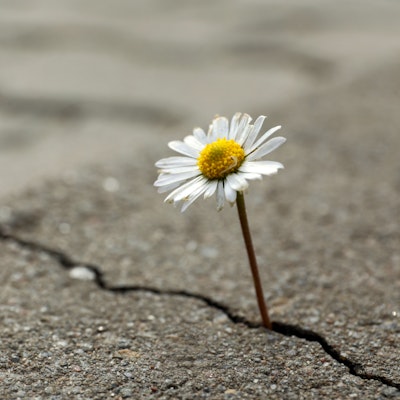World
Human Rights

Three people whose lives have been irrevocably changed by the Israel-Palestine conflict share their stories of profound loss, grief and forgiveness.


Sizable electorates around the world are flocking to populist candidates who promise power, domination and a return to better times. The global experiment in liberalism seems to be suffering a setback. In his latest book, “Age of Revolution,” journalist Fareed Zakaria teases apart the foreign policy decisions that got us to this point. Several U.S. missteps, such as the wa...


Conflict and suffering can bring out the worst in people, but it can also bring out the best. This is one of the lessons New York Times columnist Nicholas Kristof has learned from decades of reporting on the ground in war zones and amidst humanitarian nightmares. Somehow, despite witnessing atrocities like the Tiananmen Square protests, genocide in Darfur and war in Iraq,...

The war in Ukraine continues to reshape European security and global alliances, while the war in Gaza raises urgent questions about humanitarian aid and international intervention. Is there any end in sight to these conflicts? What strategies can be employed to uphold human rights and promote democratic values? How can trade policies and economic alliances be leveraged to...

As one of the foremost reporters of his generation, Nicholas Kristof has been witness to century-defining events and atrocities around the world. How has he managed to weaponize his pen against regimes and groups violating basic human rights, and still maintain faith in humanity?

Right-wing populism is surging worldwide, in places as diverse as India, the Netherlands, Argentina, France and the United States. What are the cultural and social forces driving this global storm? How can the forces of liberal democracy, diversity and pluralism reverse the tide?

As repressive regimes clamp down on the press, they are now targeting media owners. China shut Hong Kong’s Apple Daily and locked up owner Jimmy Lai. Guatemala’s El Periódico founder José R. Zamora has faced lawsuits and been jailed for two years. The sons of Lai and Zamora and Lai’s attorney discuss the international campaigns to free these two courageous truth tellers.

With antisemitism resurgent, Simon Schama, acclaimed author of “The Story of the Jews,” speaks about the magnitude of the problem, examining “the oldest hatred” from the time of the Roman Empire to today. Afterward, Tree of Life CEO Carole Zawatsky and Ford Foundation President Darren Walker share news of a hopeful new institution that could change the way we combat antise...

Across the chasm of anger that is the Israeli-Palestinian conflict, some families who have lost loved ones have found common cause in their grief. Hear from those who eschew revenge and are fighting for peace.

America’s southern border is a flashpoint for contentious political and cultural disagreements, as well as the site of a growing humanitarian crisis that existing laws, policies and institutions seem incapable of addressing. Are there any real solutions in sight?

Over 1 million people globally are held as political prisoners. Two of the leading human rights attorneys working to release captives of authoritarian regimes and the mother of an American journalist kidnapped and killed by terrorists raise awareness about the struggles to win freedom for prisoners often forgotten.


The world seems to be moving and evolving faster than ever before, and democratic ideals are under threat in many countries around the globe. New York Times columnist and journalist Thomas Friedman has spent his career learning how to see things from many sides and identify the seams in the fabric of society. He believes we’re at a moment in time when it’s critical that we...

The international community faces unprecedented threats. What will geopolitical arrangements look like going forward? Is it time to rethink America’s relationship with China? What are NATO’s strengths — and vulnerabilities? How can we protect free and independent press around the world?

In this new Aspen Ideas format, all attendees gather each morning to kick off the day by exploring a current issue of deep complexity. For decades, American policy regarding those who reach our borders has been the subject of intense political disagreement, reflecting economic realities and cultural divides. What would a policy look like that meets both our labor and se...

As Israel marks its 75th birthday, the existential challenges it faces don’t only come from geopolitical vulnerabilities. How will the Jewish state confront internal divisions and divergent opinions about threats to its democratic institutions?

Ongoing war in Ukraine and the resulting tensions between the West, Russia, and China have made the NATO alliance all the more significant, and yet perhaps more vulnerable. What lies ahead as the alliance’s member nations assess each other’s commitments to their mutual security?

Across the globe, free and fair elections have given rise to autocratic regimes. Have we underestimated the fragility of democracy and overestimated its value? (Book signing with Shadi Hamid to follow.)

Russia launched its invasion of Ukraine in February 2022, and since then, the war has proven longer and costlier than what the Kremlin might have expected. Ukrainian resistance has been successful in its counteroffensives, pushing back Russian forces from their original goal of taking Kyiv, though much of the country has still been devastated by the fighting. How much long...


As Russia’s attack on Ukraine continues, reporters bring us more and more heart-wrenching stories and images of suffering caused by the conflict. The scale of the damage can feel overwhelming, but a firsthand account can sometimes help us process the impact and ground us in what’s happening in the region. Yuliya Tychkivska is a longtime activist and the executive director...

The Russian invasion of Ukraine and resulting geopolitical instability have caused many to draw parallels to the events preceding World War II. In the post-war years, the international community came together to establish institutions they believed would prevent worldwide conflict and genocide. Multiple conventions and treaties have since been ratified in an effort to stav...





